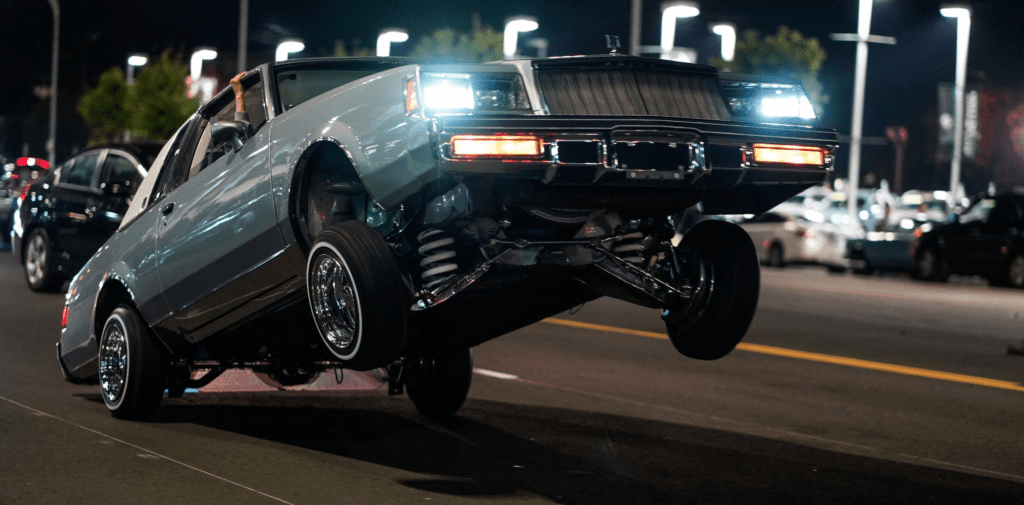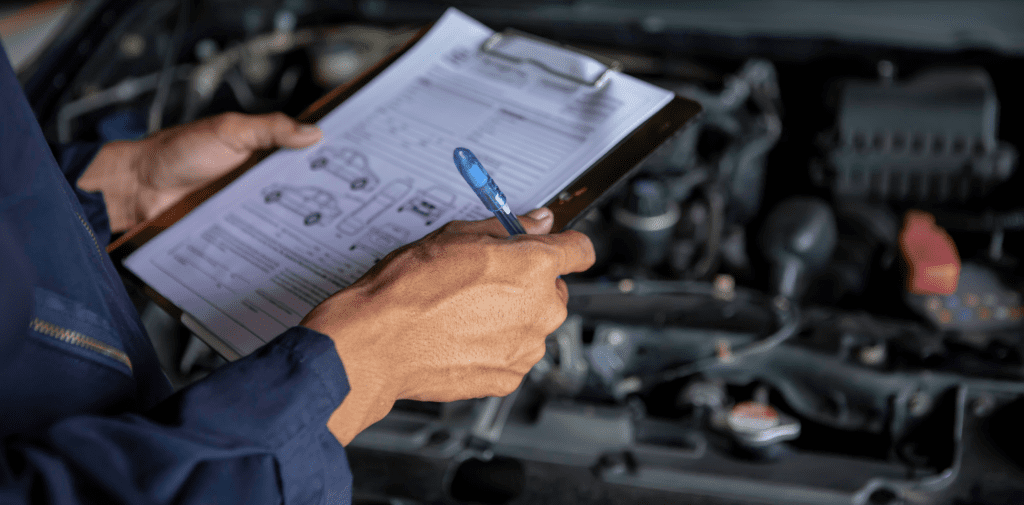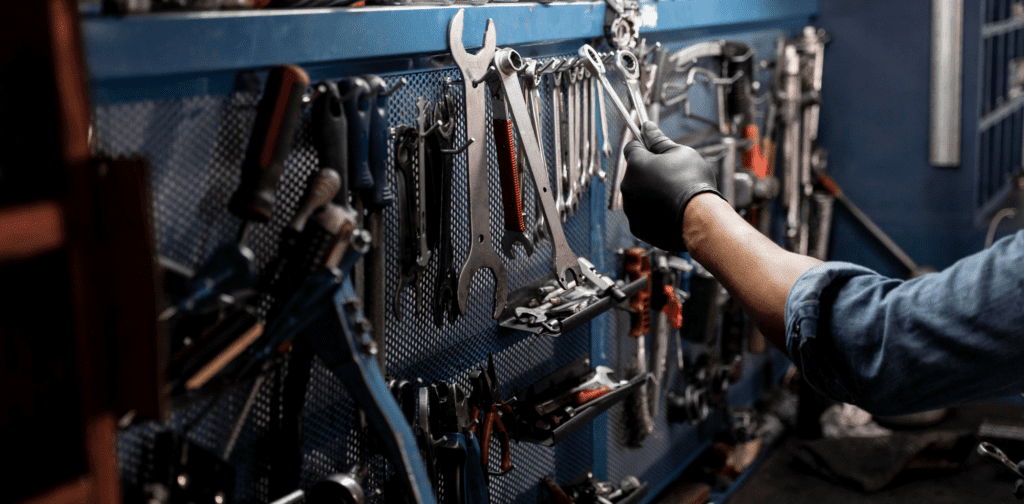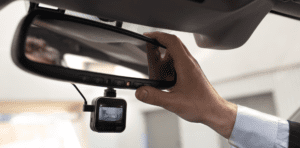Compare cheap car insurance
✔ Compare cheap car insurance quotes
✔ Over 110 insurance providers
✔ Get a quote in minutes
✔ Save up to £504*
Understanding when a car is categorised as a classic and the implications for MOT requirements is important for owners.
- When Does a Car Become MOT Exempt?
- Do Modified Classic Cars Need to Have an MOT?
- Do I Need to Apply for a Classic Car MOT Exemption?
- Is It Dangerous to Make Classic Cars MOT Exempt?
- How Do I Keep My Classic Car Roadworthy?
- Frequently asked questions
If you have a classic car, you might be wondering whether you need to pay for an MOT to legally drive it. This article provides essential information about MOTs and how they apply to older vehicles.
When Does a Car Become MOT Exempt?
Determining when a car is exempt from needing an MOT is an important aspect of owning an older vehicle. Here’s a breakdown of the key points regarding MOT exemptions for older cars, including classic vehicles.


Age Criteria for MOT Exemption
Cars Over 40 Years Old
Under current regulations, any car that is more than 40 years old is exempt from requiring an MOT test. This exemption applies as long as the vehicle has not undergone any substantial changes in the last 30 years.
This rule, which came into effect in May 2018, expanded the exemption criteria from the previous cut-off, which only included cars registered or built before 1960.
Definition of a Historic Car
Classic Car Age Consideration
While there isn’t a strict legal definition of a ‘historic car’ for MOT purposes, many people consider a car to reach classic status when it turns 40 years old. This age is often seen as a milestone when a car transitions from being merely old to having classic or historical significance.
Things to Keep in Mind
Regular Maintenance and Safety
Even though your vehicle may be MOT-exempt due to its age, it’s crucial to maintain regular checks and servicing to ensure it remains safe and roadworthy.
Owners of classic cars, especially, are encouraged to keep their vehicles in good condition, not only to preserve their historical value but also for safety reasons.
Compare classic car breakdown cover
Key Takeaway
A car becomes exempt from MOT testing when it is over 40 years old, provided it has not been significantly modified in the last 30 years.
While this often coincides with the age at which many consider a car to become a classic, maintaining the safety and upkeep of the vehicle remains a key responsibility of the owner.
How much can you save on your car insurance?
Do Modified Classic Cars Need to Have an MOT?
Understanding the MOT requirements for modified classic cars is crucial for owners. While age plays a significant role in determining MOT exemption, modifications to the vehicle can affect its eligibility.


Criteria for MOT Exemption
Age Threshold
Generally, cars that were built or first registered at least 40 years ago are exempt from needing an MOT. However, this exemption is conditional and not automatic for all vehicles in this age bracket.
Substantial Changes
A key factor is whether the car has undergone ‘substantial changes’ in the last 30 years. Significant alterations that affect the car’s chassis, suspension, steering, or engine could disqualify it from the MOT exemption.
These changes are assessed to ensure that the car remains largely as it was originally built or designed.
Acceptable Modifications
Preservation and Commercial Vehicle Changes
Some modifications are acceptable and do not impact the MOT exemption status. These include changes made to preserve the car, such as parts replacement to maintain the vehicle’s original state.
Additionally, modifications to vehicles that were previously used for commercial purposes may also be considered acceptable.
Checking Your Car’s Status
Government Guidance
If you are uncertain about whether your modified classic car qualifies for an MOT exemption, it’s advisable to consult the government’s guidance. This can provide clarity on what constitutes a substantial change and help you determine if your vehicle needs to undergo an MOT.
Key Takeaway
While many classic cars are MOT-exempt due to their age, significant modifications made within the past 30 years can affect this exemption.
Owners should be aware of the types of changes that are permissible and consult official guidance to ensure their vehicle complies with the regulations.
How much can you save on your car insurance?
Do I Need to Apply for a Classic Car MOT Exemption?
Understanding the process for obtaining an MOT exemption for your classic car is simpler than you might think. Let’s break down what is required, or rather, what is not required, for this exemption.


No Application Process Required
Automatic Exemption
For classic cars that meet the criteria of being over 40 years old and having no substantial changes in the past 30 years, there is no formal application process to declare them MOT-exempt. This exemption is automatically applied based on the car’s age and condition.
How the Exemption Works
Vehicle Tax Renewal
When you renew your vehicle tax, the exemption is typically processed. During this renewal, you will be asked to declare that your vehicle meets the criteria for MOT exemption. This is a self-declaration process and does not require any additional forms or applications specifically for the MOT exemption.
Importance of Keeping Records
Proof of Eligibility
Although there is no formal application process, it is advisable to keep records or documentation that support your car’s eligibility for MOT exemption.
This might include details of the car’s age, any modifications made, and their dates. Such records can be useful if there is ever a need to prove the vehicle’s exemption status.
Key Takeaway
If your classic car is eligible for an MOT exemption, there is no need to go through a formal application process.
The exemption is generally handled through the vehicle tax renewal process, where you make a self-declaration regarding the vehicle’s eligibility. It’s a straightforward process, but keeping records of your car’s history and condition is always a good practice.
How much can you save on your car insurance?
Is It Dangerous to Make Classic Cars MOT Exempt?
The exemption of classic cars from MOT requirements raises important questions about road safety and the responsibilities of car owners. Let’s explore these aspects in more detail.


MOT’s Role in Ensuring Roadworthiness
Purpose of MOT Tests
MOT tests are designed to ensure that all vehicles on the road are safe and roadworthy. By exempting certain classic cars from these tests, there is a concern that some vehicles might not meet the necessary safety standards, potentially leading to riskier conditions on the road.
Owner’s Responsibility for Vehicle Maintenance
Legal Obligation
Despite the MOT exemption for classic cars, the onus remains on the owner to maintain their vehicle in a roadworthy condition. Owners must regularly check and maintain critical components like lights, tyres, brakes, and steering to ensure the car is safe for road use.
Consequences of Neglecting Maintenance
Legal Penalties
If a classic car is found to be in a dangerous condition, the owner could face serious legal consequences. This includes a fine of up to £2,500, penalty points on their driving licence, and even a potential driving ban.
These penalties underline the importance of diligent maintenance and regular checks, especially for MOT-exempt vehicles.
Best Practices for Classic Car Owners
Regular Checks and Maintenance
Owners of classic cars should adopt a proactive approach to maintenance. Regularly scheduled checks, either done personally or by a professional mechanic, are crucial. This ensures that any issues are identified and rectified promptly, keeping the vehicle safe and reducing the risk of accidents.
Key Takeaway
While classic cars may be exempt from MOT tests, owners must take responsibility for their vehicle’s condition. Regular maintenance and checks are essential to ensure these vehicles remain safe and roadworthy, and failure to do so can result in significant legal penalties.
How much can you save on your car insurance?
How Do I Keep My Classic Car Roadworthy?
Maintaining the roadworthiness of your classic car is crucial for safety and longevity. Here are some key practices to ensure your classic car remains in top condition and safe for the roads.


Regular Servicing
Importance of Professional Checks
Regular servicing by a professional mechanic is essential. This not only helps in identifying and addressing any potential issues before they escalate into major safety risks but also reduces the likelihood of breakdowns. A well-maintained classic car is more reliable and safer to drive.
Routine Self-Checks
Regular Maintenance Tasks
It’s important to frequently check various aspects of your car:
- Fluid Levels: Ensure that oil, coolant, brake fluid, and other essential fluids are at the correct levels.
- Tyre Tread and Pressure: Regularly check the tyres for adequate tread depth and proper inflation.
- Lights and Indicators: Ensure all lights and indicators are functioning correctly.
- Brakes and Steering: Check for any signs of wear or issues in the braking system and steering responsiveness.
Considering an MOT Test
Voluntary MOT for Peace of Mind
Even if your classic car is exempt from the legal requirement of an MOT, you might consider booking it for an MOT test voluntarily.
This can provide you with peace of mind, knowing that a professional has thoroughly checked your vehicle and deemed it safe for road use. An MOT test can be a useful tool for assessing the overall condition of your classic car and identifying areas that may need attention.
Ongoing Vigilance
The Importance of Regular Attention
Keeping a classic car roadworthy requires ongoing vigilance. Regular checks and maintenance, coupled with professional servicing, can help preserve the car’s condition, ensuring it remains a safe and enjoyable vehicle to drive.
Key Takeaway
Maintaining a classic car’s roadworthiness involves a combination of regular professional servicing, routine checks and maintenance, and considering an MOT test for additional assurance. These steps are vital not just for meeting safety standards but also for preserving the integrity and value of your classic car.
How much can you save on your car insurance?
Frequently asked questions
Determining the age of your car can be done in a few simple ways, especially if you don’t have immediate access to the information in your V5C log book.
Contacting the DVLA
If your V5C log book doesn’t provide the necessary details, your first point of contact should be the Driver and Vehicle Licensing Agency (DVLA). They maintain comprehensive records of all registered vehicles in the UK and can inform you about the age of your car.
Using Online Valuation Services
Another convenient method is to use free online car valuation services. These platforms can often determine your car’s age based on its registration number. Simply enter the registration number of your car on these websites, and they will provide you with detailed information, including the age of your vehicle.
Classic vans and motorcycles fall under the same MOT exemption criteria as classic cars. This means that if they are over 40 years old, they are exempt from needing an MOT test.
It’s important to remember, though, that they must still be kept in a roadworthy condition, and any necessary maintenance should be regularly carried out to ensure their safety and legality on the road.
Classic cars that are over 40 years old are eligible for a road tax exemption. This means you don’t have to pay road tax for such vehicles. To avail of this exemption, you can apply at your local Post Office.
It’s a straightforward process, ensuring that owners of classic cars benefit from this exemption as part of maintaining and using historic vehicles.
Yes, you can certainly insure your classic car. For cars manufactured from the 1970s onwards, most mainstream insurance providers offer cover. To find the best deals for these cars, you can use services like Comparoo, which allow you to compare car insurance quotes for vehicles made after 1970.
For classic cars that are older than the 1970s, it may be necessary to consider specialist classic car insurance. These policies are tailored for older, more unique vehicles and often provide cover that better suits the specific needs and values of classic cars.










